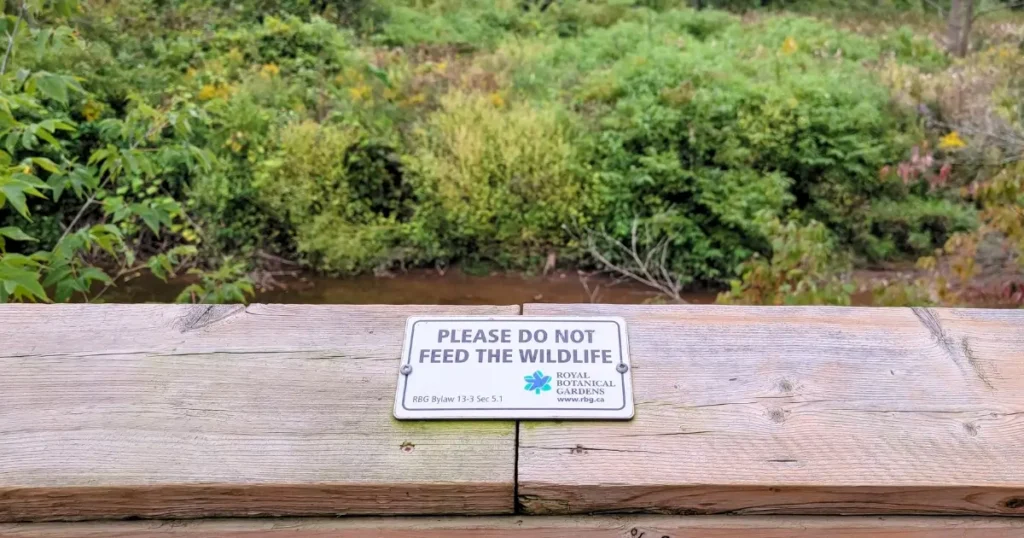
Photo by The Fur-Bearers
A popular walking trail in a nature sanctuary may be closed to visitors if feeding of birds and wildlife isn’t curbed.
The Royal Botanical Gardens (RBG) in Burlington, Ontario, posted a notice at the entrance to their popular Hendrie Valley Nature Sanctuary Trails warning of the closure, reports InsideHalton.com.
RBG has a 27-kilometre-long network of hiking trails through 2,100 acres of nature sanctuaries, their website says, and offers visitors an opportunity to immerse themselves in nature – while only minutes away from the city centre of Hamilton. But the activity of feeding birds and wildlife native to the area is creating a litany of issues. According to the RBG website:
- Squirrels and chipmunks having their diets supplemented means they may not distribute native tree nuts like acorns, walnuts, and hickories – and that can change the structure of the forest over time.
- Leaving birdseed along trails is feeding a “soaring population” of predatory omnivores like skunks, opossums, raccoons, squirrels, and chipmunks. These animals then begin eating turtle and bird eggs – many of whom are species at risk.
- Artificially inflating the populations of these animals leads to a higher concentration of them, increasing stress, aggression, and spread of illness – which negatively impacts the health and welfare of individuals and the entire ecosystem.
- Birds that fill up on seed may not eat the natural foods that provide them with ideal nutrition – ultimately decreasing their health.
- The RBG has found invasive plants like millet growing along trails due to people distributing seed.
- The presence of peanut protein in nature sanctuaries (often left on areas where people may sit, rest, or along trails that are frequently touched) creates a direct hazard for any visitor who has an anaphylactic allergy.
An InsideHalton.com article indicates that fines have been levied to visitors, but RBG declined to indicate how many were issued. Additionally, City of Burlington by-law enforcement are able to educate and hand out tickets for feeding.
The Fur-Bearers supports the RBG call to end feeding on its trails and the significant measure of closing trails if visitors are unable to comply; the safety and welfare of all animals who call the sanctuary home, and health of the ecosystem are dependent upon it.
Learn more about the impacts of wildlife feeding by clicking here.
